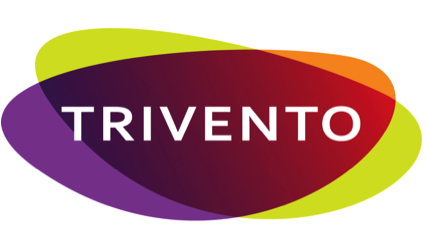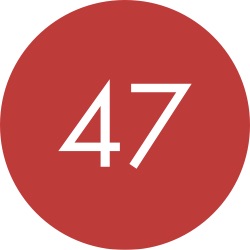
Martin Odersky, Chief Architect & Co-Founder at Typesafe
Scala - where it came from, where it's going
Monday June 8
June 8-10th, Amsterdam

Martin Odersky, Chief Architect & Co-Founder at Typesafe
Scala - where it came from, where it's going
Monday June 8
Jonas Bonér, Co-founder and CTO of Typesafe
Life Beyond the Illusion of Present
Tuesday June 9

Adam Gibson, Co-founder of Skymind and Creator of Deeplearning4
The Future of AI in Scala, and on the JVM
Wedneday June 10
Scala Days Amsterdam 2015 conference tickets are now SOLD OUT. But don't panic - we still have a few seat left for trainings!
Sign up for our wait list and get contacted if we get a spare conference seat.
Scala Days, the premier European Scala Conference, will be held this year at the Beurs Van Berlage in Amsterdam on June 8th through 10th, 2015.
The conference will bring together developers from all corners of the world to share their experiences and new ideas around creating applications with Scala and related technologies, like Akka and Play Framework. Scala Days provides a unique opportunity for Scala users to interact with the contributors to the language and related technologies and connect with fellow developers.
Last year’s conference in Berlin was a sold-out event at 800 attendees, and for 2015 we have added two annual events: San Francisco and Amsterdam. Leaders from Scala User Groups and communities around the globe, students and language contributors, will gather to discuss academic research, use-cases and visionary projects for a two day, action-packed event.
We want to give all Scala enthusiasts the opportunity to attend and share Scala related events before, during and after Scala Days Amsterdam 2015. Add our Scala Community Event Calendar for Scala Days Amsterdam 2015 where non-Scala Days meetups and trainings will be posted by community members. Please also share your Scala event in this calendar by sending information about the event to [email protected]. This way we can get together and share knowledge and passion about Scala.
| 16:00 | Registration Open |
|---|---|
| ROOM | Effectenbeurszaal (Ground Floor) |
| TRACK |
|
| 17:00 |
|
| 18:30 |
|
| 08:00 | Registration Open | |||
|---|---|---|---|---|
| 09:00 |
|
|||
| 10:00 | Break | |||
| ROOM | Effectenbeurszaal (Ground Floor) | Administratiezaal (1 st Floor) | Berlagezaal (1 st Floor) | Veilingzaal (1 st Floor) |
| TRACK |
|
|
|
|
| 10:25 |
|
|
|
|
| 11:10 | Break | |||
| 11:35 |
|
|
|
|
| 12:20 | Lunch | |||
| 13:20 |
|
|
|
|
| 14:05 | Break | |||
| TRACK |
|
|
|
|
| 14:30 |
|
|
|
|
| 15:15 | Break | |||
| TRACK |
|
|
|
|
| 15:40 |
|
|
|
|
| 16:25 | Break | |||
| 16:50 |
|
|
|
|
| 17:35 | Break | |||
| TRACK |
|
|
|
|
| 18:00 |
|
|
|
|
| 18:45 |
|
|||
| 08:00 | Registration Open | |||
|---|---|---|---|---|
| 09:00 |
|
|||
| 10:00 | Break | |||
| ROOM | Effectenbeurszaal (Ground Floor) | Administratiezaal (1 st Floor) | Berlagezaal (1 st Floor) | Veilingzaal (1 st Floor) |
| TRACK |
|
|
|
|
| 10:25 |
|
|
|
|
| 11:10 | Break | |||
| 11:35 |
|
|
|
|
| 12:20 | Lunch | |||
| 13:20 |
|
|
|
|
| 14:05 | Break | |||
| TRACK |
|
|
|
|
| 14:30 |
|
|
|
|
| 15:15 | Break | |||
| 15:40 |
|
|
|
|
| 16:25 | Break | |||
| TRACK |
|
|
|
|
| 16:50 |
|
|
|
|
| 17:35 | Break | |||
| 18:00 |
|
|||
Want to get the most out of Scala Days Amsterdam. Register for an in-person training course prior to the Scala Days conference on Saturday June 6 & Sunday June 7 . The courses are designed for developers of all levels of proficiency with the Typesafe Reactive Platform.
All trainings will take place at:
ING
Bijlmerplein 888
1102 MG Amsterdam
Saturday June 6 & Sunday June 7
This two-day course is designed to give experienced developers proficient in Java, C++, C# or Ruby the know-how to confidently start programming in Scala. The course ensures you will have a solid understanding of the fundamentals of the language, the tooling and the development process as well as a good appreciation of the more advanced features. If you already have Scala programming experience, then this course could be a useful refresher, yet no previous knowledge of Scala is assumed.
Instructor: Jean Helou
Jean has been a professional developer for over ten years. He currently works as a freelance Scala developer in Lyon where he is involved in multiple Scala, Play! and Akka projects. Jean is a passionate programmer who loves sharing, about Scala but also application design, code quality and all software engineering topics. In the spirit of sharing his passion, he created and co-organizes the Lyon Scala User Group, helps organize a yearly Scala community conference in Paris and regularly facilitates workshops around Scala and/or software engineering either at user groups or at conferences.
Prerequisites: Students should bring their own laptop with Java 6 or higher installed.
Saturday June 6 & Sunday June 7
If you already have programming experience with Scala and want to understand its advanced features, this two-day course is for you. It is designed to help developers fully understand topics such as advanced object-functional programming, the power of Scala's type system, implicits, etc. The course also covers how to leverage these features to create well-designed libraries or DSL's utilizing proven best practices.
Instructor: Jerzy Müller
Jerzy is a functional programming passionate, currently evangelist of Scala. He also likes to dwell into software engineering topics like code quality, peer review or architecture design. At his day job in VirtusLab he is involved in multiple Scala projects using Akka, Play! and Scala IDE. After hours he is co-organizer of Kraków Scala User Groups, attends several other meetup groups, dances and reads a lot of books.
Co-instructor: Heiko Seeberger
Heiko Seeberger has been a Scala enthusiast ever since he came to know this fascinating language in 2008. Deeply interested in distributed computing he became a contributor to the amazing Akka project in 2010. Heiko has more than 15 years of professional expertise in consulting and software development on the Java platform and regularly shares his expertise in articles and talks. He is also the author of the German Scala book "Durchstarten mit Scala". Heiko tweets as @hseeberger and blogs under heikoseeberger.de.
Prerequisites: A basic knowledge of Scala as covered in the "Fast Track to Scala" course with at least two months practical experience in developing with Scala. Students should bring their own laptop with Java 6 or higher installed.
Saturday June 6 & Sunday June 7
This two-day course introduces experienced application developers to the reactive Akka toolkit and runtime and the methodologies that enable the creation of real-world actor-based systems in Scala on a single JVM. This course has extensive hands-on work and successive exercises build upon prior lessons learned to produce a fully functional application that is both event-driven and resilient by the conclusion of the course.
Instructor: Eric Loots
After signing up for and completing the first instantiation of the ‘Functional Programming with Scala’ course, Eric instantly fell in love with Scala. With over 30 years experience in IT, Eric is once again enjoying the pleasure of putting great technologies such as Scala and Akka to practical use while solving real customer business problems.
Prerequisites: Code examples and exercises will be written in Scala, so a basic knowledge of Scala as covered in the "Fast Track to Scala" course is required. Students should bring their own laptop with Java 6 or higher installed.
Saturday June 6 & Sunday June 7
This is a two-day advanced course on building distributed reactive applications using Akka and Scala. It is intended for developers who already have a strong understanding of the fundamentals of building applications using Akka and Scala on a single JVM and are looking to learn how to scale out to multiple nodes and 3rd party systems. This course has extensive hands-on work and successive exercises build upon prior lessons learned to produce a fully functional application that is both event-driven and resilient by the conclusion of the course.
Instructor:Brendan McAdams
Brendan is a Senior Consultant at BoldRadius, where he works directly with clients to help them find success through consulting and training on the Typesafe Reactive Platform. With over 15 years of software development experience, Brendan boasts an impressive resume that has seen him work at Netflix, Typesafe, and MongoDB. Brendan is a renowned speaker and luminary in the Scala community, and is a regular presenter at industry leading conferences such as ScalaDays and Scala eXchange. His deep technical knowledge coupled with his outgoing and approachable personality not only make him a great speaker, but also a phenomenal trainer on the Typesafe Reactive Platform.
Instructor: Michael Nash
For over thirty years, Michael has designed, developed, shipped and consulted on software development projects for clients of all shapes and sizes. As an advocate for software craftsmanship with expertise in project management and architecture, Michael was amongst the earliest of adopters of the Typesafe Stack, with over 5 years experience working with Scala, Akka and Spray. Michael brings his wealth of knowledge, experience and unrelenting passion for software development to his training courses, as he loves to help others learn new technologies.
Prerequisites: A basic knowledge of Akka as covered in the "Fast Track with Akka and Scala" course as well as a basic knowledge of Scala as covered in the "Fast Track to Scala" course with at least two months practical experience in developing with Akka and Scala. Students should bring their own laptop with Java 6 or higher installed.
Saturday June 6 & Sunday June 7
This two-day course introduces experienced web-developers to the design-patterns and methodology essential to building reactive, scalable web applications with Play Framework and Scala. In this course, successive exercises build upon prior lessons learned to produce a fully functional application by the conclusion of the course.
Instructor: Peter Hilton
Peter Hilton is a software developer, writer, speaker, trainer, and musician. Peter’s professional interests are web application development, functional design, agile software development and project management. He has extensive experience on projects for large customers in the logistics, government, financial services, energy, utilities, pharmaceutical, transport and space industries. Peter’s software development interests include JVM web application frameworks, software development methodology and practices, and web-based collaboration. Peter’s speciality is database-backed intranet web application architecture, design and build. He currently builds web applications using Scala, Play Framework and Slick. Previously, Peter gained significant experience with Java EE web technology and middleware, such as Drools.
Prerequisites: Code examples and exercises will be written in Scala, so a basic knowledge of Scala as covered in the "Fast Track to Scala" course is required, as is experience with HTML and JavaScript. Students should bring their own laptop with Java 6 or higher installed.
Sunday June 7
This one-day workshop is designed to teach developers how to implement data analytics using for Reactive applications. Apache Spark is a distributed computing system written in Scala and developed initially as a UC Berkeley research project for distributed data programming. It has grown in capabilities and it recently became a top-level Apache project. In this workshop, developers will use hands-on exercises to learn the principles of Spark programming and idioms for specific problems, such as event stream processing, SQL-based analysis on structured data in files, integration with Reactive frameworks like Akka, as well as Hadoop and related tools, and advanced analytics, such as machine learning and graph algorithms.
Instructor: Andy Petrella
Andy is a mathematician turned into a distributed computing engineer with an entrepreneurship trait. Andy is a certified Scala/Spark trainer and wrote the Learning Play! Framework 2 book. He participated in many projects, building on top of spark, cassandra, and other distributed technologies, in various fields including Geospatial, IoT, Automotive and Smart cities projects. He is the creator of one of the top projects on GitHub related to Apache Spark and Scala, the spark-notebook (https://github.com/andypetrella/spark-notebook/). He enjoyed his contribution to the processing and data science teams of the notable and successful start-up Virdata. He now develops genomics and heath data services, Med@Scale, within the Data Fellas company he co-founded with Xavier Tordoir.
Co-instructor: Paco Nathan
Paco Nathan is a "player/coach" data scientist, with expertise in distributed systems, machine learning, functional programming, cloud computing, and 30+ years technology industry experience ranging from Bell Labs to early-stage start-ups. He is an O'Reilly author, and an advisor for Amplify Partners and GalvanizeU. Cited in 2015 as one of the Top 30 People in Big Data and Analytics by Innovation Enterprise.
Scala Days Amsterdam 2015 conference tickets are now SOLD OUT. But don't panic - we still have a few seat left for trainings!
Sign up for our and get contacted if we get a spare conference seat.
Ticket prices listed below are exclusive of VAT. Dutch companies paying for the conference and training registrations will not be charged VAT. For everyone else tickets are subject to 21% VAT. Scala Days Conference and Training registrations are non-refundable.
| Before March 23 | Before April 20 | After April 20 |
|---|---|---|
| €650 | €700 | €800 |
| Before March 23 | Before April 20 | After April 20 |
|---|---|---|
| €400 | €400 | €400 |
| Before March 23 | Before April 20 | After April 20 |
|---|---|---|
| €1550 | €1800 | €1900 |
| Before March 23 | Before April 20 | After April 20 |
|---|---|---|
| €1100 | €1250 | €1350 |
| Before March 23 | Before April 20 | After April 20 |
|---|---|---|
| €450 | €550 | €550 |
| Before March 23 | Before April 20 | After April 20 |
|---|---|---|
| €900 | €1100 | €1100 |














Interested in being a sponsor at Scala Days Amsterdam? Contact us at [email protected].
Our Code of Conduct is inspired by the kind folks at NE Scala, who adopted theirs from PNW Scala. We think they both nailed it.
Nobody likes a jerk, so please show respect for those around you. This applies to both in-person and online behavior.
Scala Days is dedicated to providing a harassment-free experience for everyone, regardless of gender, gender identity and expression, sexual orientation, disability, physical appearance, body size, race, or religion (or lack thereof). We do not tolerate harassment of participants in any form.
All communication should be appropriate for a technical audience, including people of many different backgrounds. Sexual language, innuendo, and imagery is not appropriate for any conference venue, including talks.
Participants violating these rules may be asked to leave without a refund at the sole discretion of the organizers.
We already have the crew we need for Scala Days Amsterdam!
If you want to be on the waiting list please contact Dajana Günther
Volunteer as a Crew Volunteer and receive a FREE pass to Scala Days 2015.
All crew volunteers will be required to work on Monday June 8th from 12:00 PM - 5:00 PM as well as another shift on Tuesday June 9th or Wednesday June 10th (in total about 15 hours). In return for helping with the conference, crew volunteers will have free access to the conference and all social events. Register to be crew by entering "crew" in the promotion code field on the registration form.